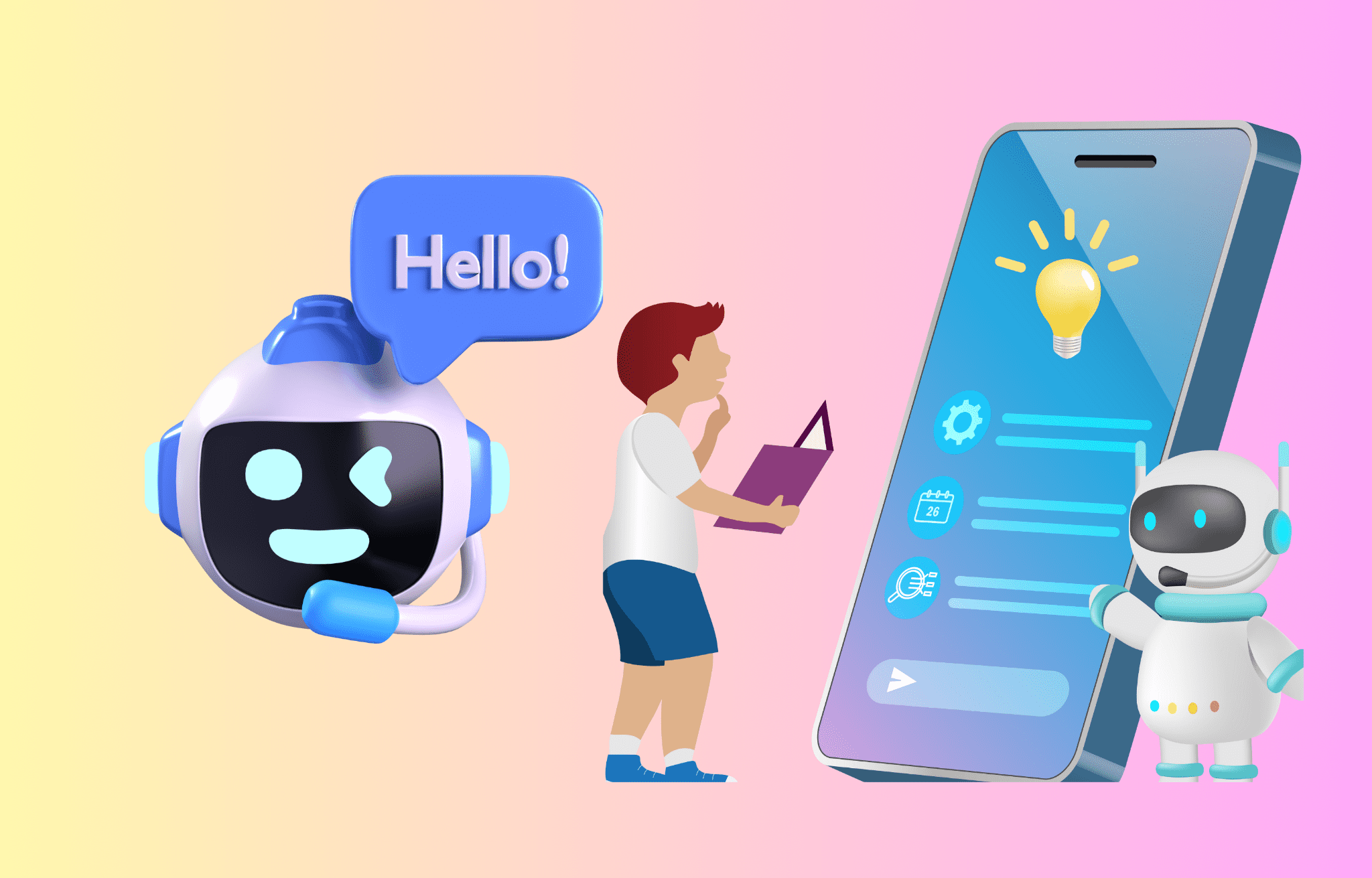
The digital landscape has seen significant advancements in recent years, with artificial intelligence (AI) emerging as a powerful tool for transforming customer experience. One of the most practical applications of AI today is the development of chatbots that assist, engage, and support customers across industries. By simulating human-like conversations, AI chatbots streamline communication, improve customer satisfaction, and provide businesses with an efficient means of interacting with their audiences around the clock.
AI chatbots go beyond typical automated responses to offer personalized solutions, understand complex queries, and even identify user emotions to enhance interactions. They’ve evolved from basic customer service tools to become integral components of digital strategies across sectors like e-commerce, finance, healthcare, and education. Here’s a closer look at how AI chatbots are reshaping customer experiences and why they’re essential for businesses today.
1. The Evolution of AI Chatbots
When chatbots first entered the market, they were primarily designed for customer service. These bots were limited to pre-defined responses and couldn’t handle complex inquiries. However, as AI technology progressed, so did the functionality of chatbots. Today’s AI-driven chatbots can use machine learning, natural language processing (NLP), and sentiment analysis to understand user intent and provide more accurate responses. In fact, a similar evolution is taking place across various media with tools like the AI YouTube Shorts Generator, which allows businesses to easily create impactful, bite-sized video content.
Through NLP, chatbots can understand language patterns, identify the context, and offer personalized answers. With machine learning, they improve over time by learning from past interactions and adjusting responses based on user preferences. Advanced chatbots are now able to handle complex requests and are flexible enough to respond to diverse needs, making them invaluable tools for businesses seeking to engage customers in a personalized way.
2. The Role of AI Chatbots in Enhancing Customer Experience
AI chatbots have become essential in enhancing the customer journey from start to finish. Here’s how they contribute to a more streamlined, satisfying customer experience:
a. 24/7 Availability and Faster Response Times
One of the primary advantages of AI chatbots is their ability to offer immediate responses at any time of day. Customers no longer need to wait for business hours to resolve their inquiries, which is particularly beneficial in sectors like e-commerce and finance, where timely responses can make a significant difference.
By handling a high volume of customer interactions simultaneously, chatbots reduce response times, resulting in faster resolutions. This constant availability also reduces the burden on human support teams, allowing them to focus on complex issues that require human expertise.
b. Personalization and Improved Engagement
Modern AI chatbots analyze customer data to create a tailored experience. For instance, by tracking previous interactions, a chatbot can suggest relevant products, services, or solutions that align with the user’s preferences and needs. This level of personalization enhances customer satisfaction, as users feel that their specific needs are being addressed.
AI chatbots can also engage customers by providing relevant information in real-time, answering questions, and even guiding them through the purchasing process. This personalized interaction can lead to higher engagement and improved customer loyalty, as users appreciate the proactive support they receive.
c. Reduced Operational Costs
Chatbots are cost-effective alternatives to human customer service representatives, especially for handling routine inquiries. They allow businesses to allocate resources more efficiently, reducing the need for large customer service teams while still providing consistent and high quality support. In addition, they can be scaled easily as customer demand fluctuates, making them a flexible solution for businesses of all sizes.
d. Enhanced Data Collection and Insights
AI chatbots don’t just communicate with customers; they also gather valuable data that can improve business strategies. By tracking user interactions, businesses can gain insights into customer preferences, frequently asked questions, and common issues. This data is invaluable for refining products, services, and marketing approaches.
For instance, if a chatbot recognizes that customers frequently inquire about a specific feature, a business might prioritize improving that feature or making related information more accessible. This real-time feedback loop enables companies to respond more effectively to customer needs, ultimately leading to an enhanced overall experience.
3. AI Chatbots and Omnichannel Customer Support
In a digital age where customers use multiple channels to interact with businesses, providing a seamless, unified experience across all touchpoints is crucial. AI chatbots play a pivotal role in supporting this omnichannel approach, as they can be integrated into various platforms such as websites, social media, and mobile applications.
For instance, an e-commerce brand could use a chatbot on its website to assist customers with product questions while simultaneously offering support on social media channels. This consistent service across platforms ensures customers receive the same level of assistance, regardless of where they engage. By providing a uniform experience, AI chatbots help businesses maintain brand reliability and meet customers on the platforms they’re most comfortable using.
4. Building Stronger Customer Relationships through AI Chatbots
With the ability to mimic human conversation, AI chatbots foster stronger relationships with customers by offering a more relatable, engaging interaction. They can be programmed with personality traits that align with the brand’s identity, whether it’s friendly, formal, or humorous. This humanized approach helps customers feel comfortable interacting with the chatbot, encouraging trust and fostering long-term loyalty.
Chatbots also support customer retention by offering timely follow-ups and reminders. For example, a chatbot could remind a user about an abandoned cart, a new product, or a relevant promotion. By gently guiding customers through their journey, AI chatbots help ensure that users remain engaged with the brand. Similarly, AI powered tools like the AI YouTube Shorts Generator are helping brands create quick, informative videos to engage audiences on platforms that prioritize short form content.
5. The Role of AI in Shaping Future Chatbot Technology
The development of AI chatbots shows no signs of slowing down, and the technology is expected to become even more sophisticated in the future. With advancements in AI, chatbots are increasingly able to handle nuanced conversations and understand complex language patterns. Additionally, chatbots are being enhanced with voice recognition and voice response capabilities, offering a more accessible experience for users who prefer voice interactions over text.
Future chatbots will likely integrate even more seamlessly into everyday customer service interactions, allowing businesses to provide a consistently high level of support. As chatbots continue to evolve, businesses that prioritize this technology will be better equipped to meet customer expectations and remain competitive.
Conclusion: Embracing AI Chatbots for Customer Experience Excellence
In a digital era where customer experience is a key differentiator, AI chatbots are proving to be an invaluable asset for businesses seeking to enhance engagement, improve satisfaction, and streamline operations. Through 24/7 availability, personalized interactions, cost savings, and omnichannel support, AI chatbots empower businesses to deliver quality customer service that meets the demands of today’s customers.
For companies of all sizes, investing in AI chatbots is not only a step toward greater efficiency but also a means of building deeper, more meaningful relationships with customers. As AI continues to advance, businesses that adopt chatbot technology will be well-positioned to lead the way in customer experience innovation, delivering personalized, responsive, and engaging support across digital touchpoints.







